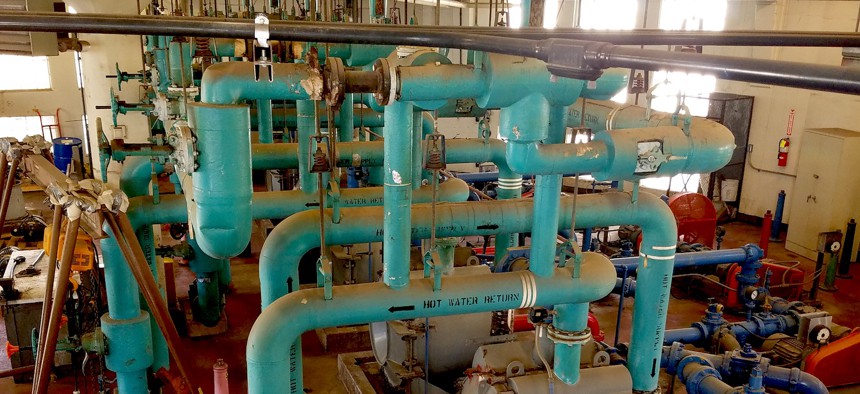Connecting state and local government leaders
PHOTOS: Treating raw sewage and stormwater involves a maze of pipes and plenty of data analytics, too.
SAN FRANCISCO — In a long concrete tunnel somewhere underneath the Southeast Treatment Plant campus, there’s a collection of labeled parallel pipes: One of the larger gray pipes is for “Primary Scum” with a directional arrow pointing left. Two other smaller gray pipes, also with left-pointing arrows, are for “Sludge, Waste Activated.” And below those conduits is a light blue pipe labeled “Thickener Underflow,” where an arrow pointing toward the right.

Yes, those descriptions may be unsavory—not to mention somewhat confusing—but where those pipes go and what they do is critically important for the City by the Bay to function properly. The tunnel and those pipes are part of a larger complex in San Francisco’s Bayview Hunters Point neighborhood where about 80 percent of the city’s wastewater is processed before it empties in the bay via a 900-foot outflow pipe.
San Francisco has a combined sewer system, meaning that raw sewage and wastewater from homes, businesses and public facilities are processed along with stormwater draining from city streets and other drainage systems through a common system of pipes. San Francisco is the only coastal city in California to have such a combined system.
Originally built in 1953, the San Francisco Public Utilities Commission’s Southeast Treatment Plant is situated in a crowded mixed-used neighborhood and like many other wastewater treatment plants around the nation, is showing its age. But it’s the wastewater treatment workhorse in San Francisco, treating 57 million gallons of wastewater per day and 160 wet tons of biosolids each day, according to the commission.
The remainder of the city’s wastewater is treated at the Oceanside Treatment Plant near the Pacific Ocean and during times of heavy rainfall, at a third “wet weather” facility near Fisherman’s Wharf.
During a tour earlier this year, Route Fifty explored the Southeast Treatment Plant complex with plant personnel, not only to better understand the science of the wastewater treatment process but also the technology that helps the commission monitor its on-site systems and make informed decisions in real time.
From Start to Finish
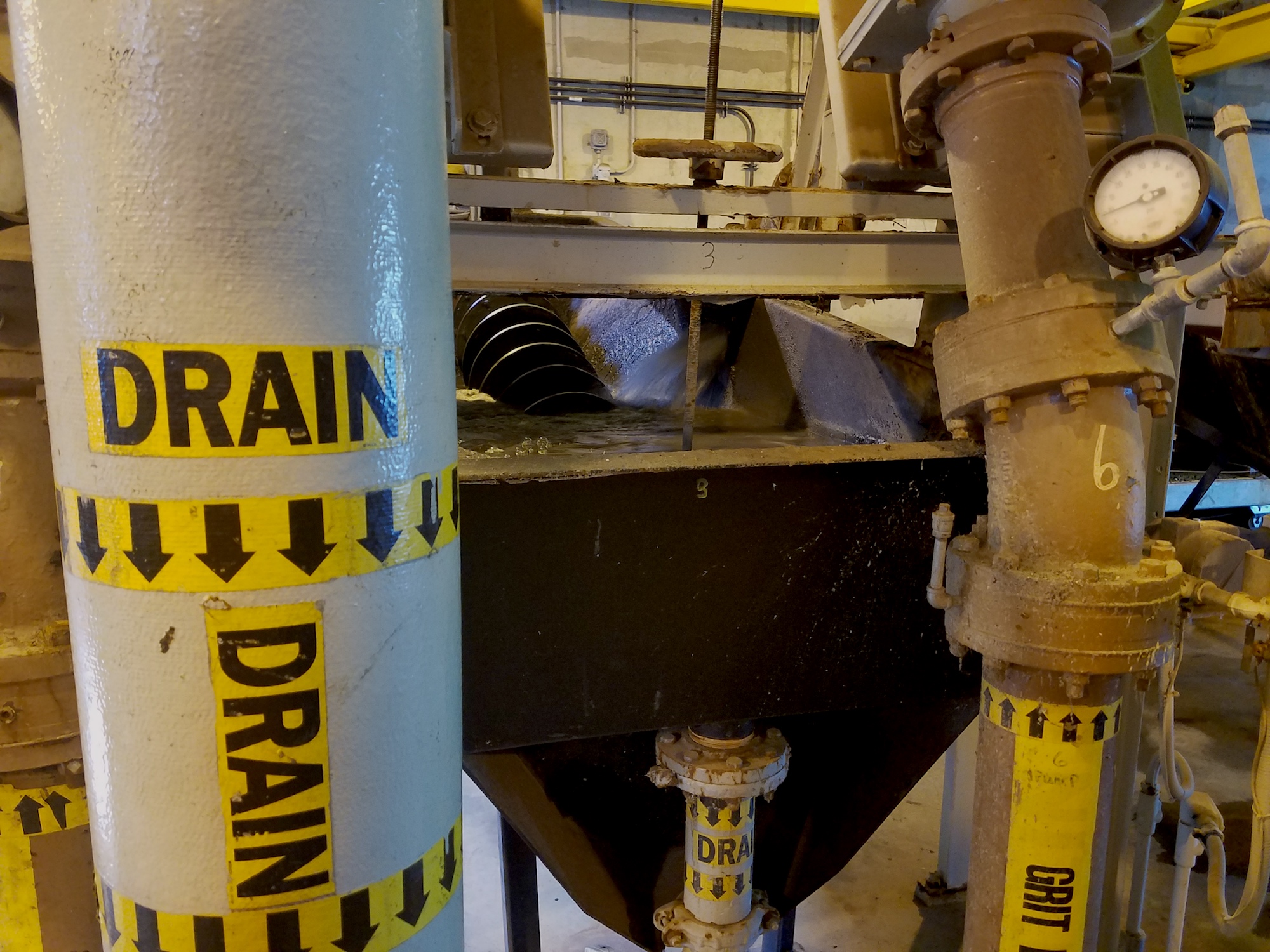
While the science of wastewater treatment can get quite technical, the process can be generally summed up into a few steps.
Since wastewater treatment relies on gravity, the tour started in a building at the highest point in the complex, where stormwater and raw sewage goes through initial screening where larger items are sifted out and then a second screening where smaller particulate material is removed. Up to eight truckloads of screened materials from the facility is hauled to landfills daily.
The next step is “primary clarification,” where wastewater is held in large tanks where solids settle to the bottom. Oils and grease that rise to the surface are collected.
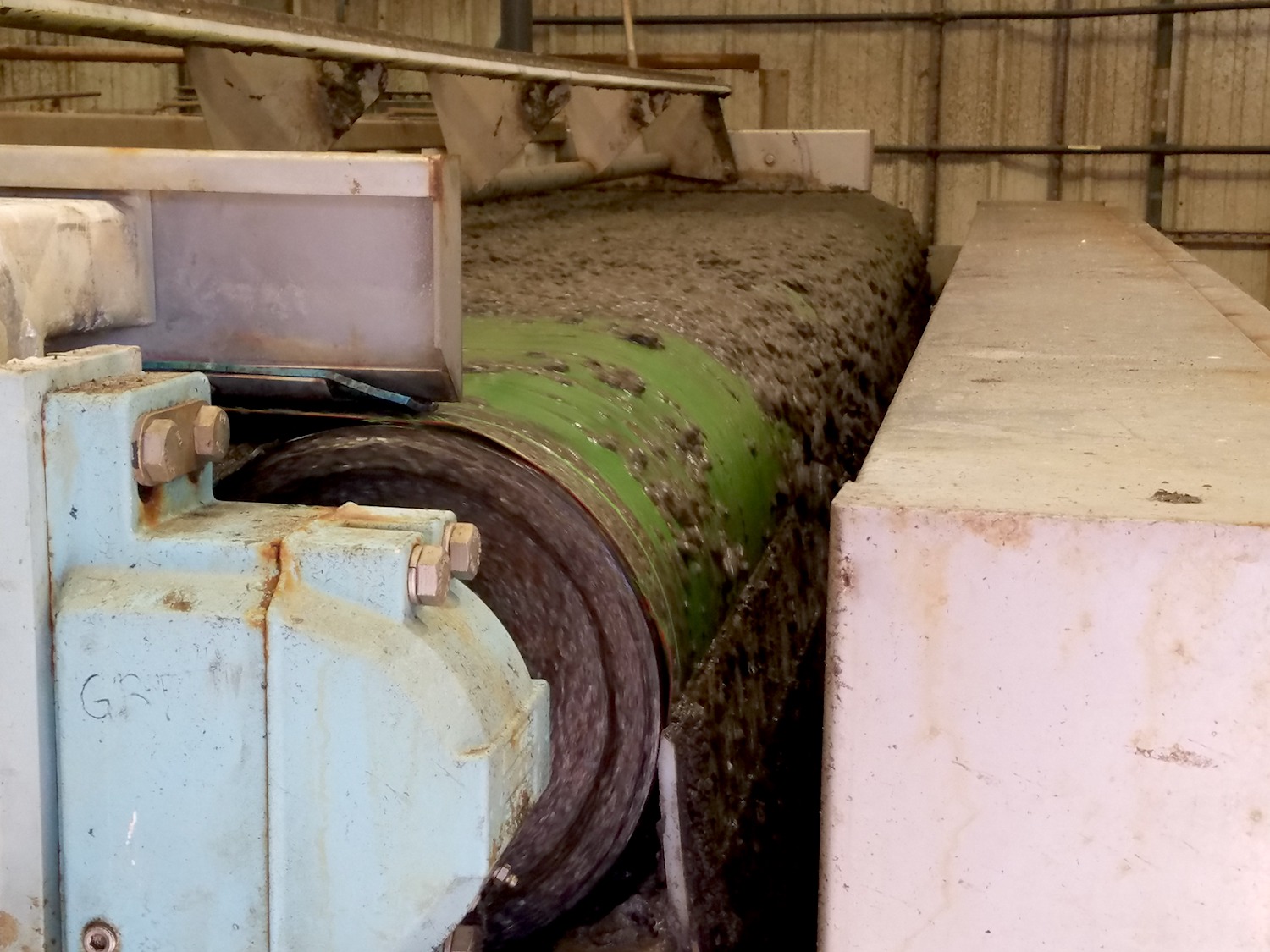
Then comes “aeration,” where organisms eat up various biological materials in the liquid, using the stew as an energy source and in the process, purifying the wastewater.
After another round of clarification and using gravity, the treated wastewater is now known as “effluent,” which is safe to release back into the bay or ocean.
Wastewater Management Tech
While the science of how wastewater is treated hasn’t necessarily changed all that much since the Southeast Treatment Plant was first opened, the technology that manages its systems has.
For its wastewater treatment plants, SFPUC uses the Pi System, an open enterprise infrastructure platform that’s used by 150 utilities around the world that serve 250 million people, including the more than 850,000 residents in San Francisco.
“Our system monitors 1.5 billion sensors around the world,” Gary Wong, the global water industry principal at San Leandro, California-based OSIsoft, told in an interview with Route Fifty.
Besides the San Francisco Public Utilities Commission, the system is also used by the Metropolitan Water District in Southern California and New York City’s Department of Environmental Protection.
Before implementing the Pi System, the SFPUC personnel at the plant “didn’t have the operational visibility or the situational awareness” they needed, Wong said. “They were flying blind or using gut feelings. Now, they’ve really transformed their world to have that real time situational awareness” and the ability to make more data-driven decisions.
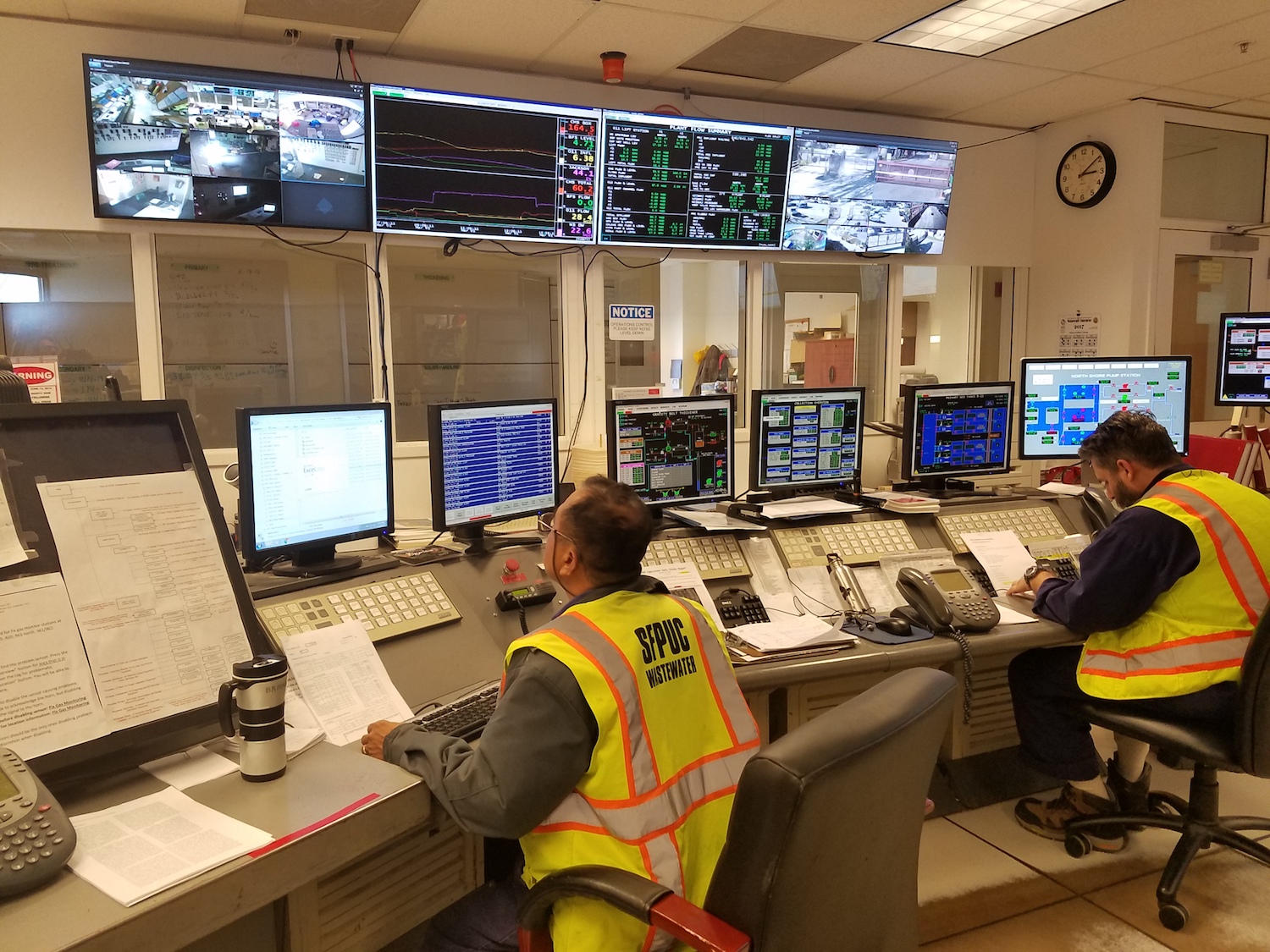
It’s about “getting the data to the people who need it,” Wong said. “It’s about being predictive and being proactive.”
Fueling the Pi System is real-time data coming in from a vast sensor network and the flow of information is streamlined so personnel can make decisions about how to move stormwater and wastewater through the complex system.
“It’s one source of the truth. They no longer have to log into five different systems,” Wong said. “It’s bridging the gap between the operational technological word with the IT world.”
During Route Fifty’s tour, SFPUC personnel who work with the Pi System echoed those sentiments about how the platform has streamlined their operations management. During California’s wet winter, which caused flooding in many parts of the state, the Southeast Treatment Plant didn’t have any issues managing higher amounts of rainfall.
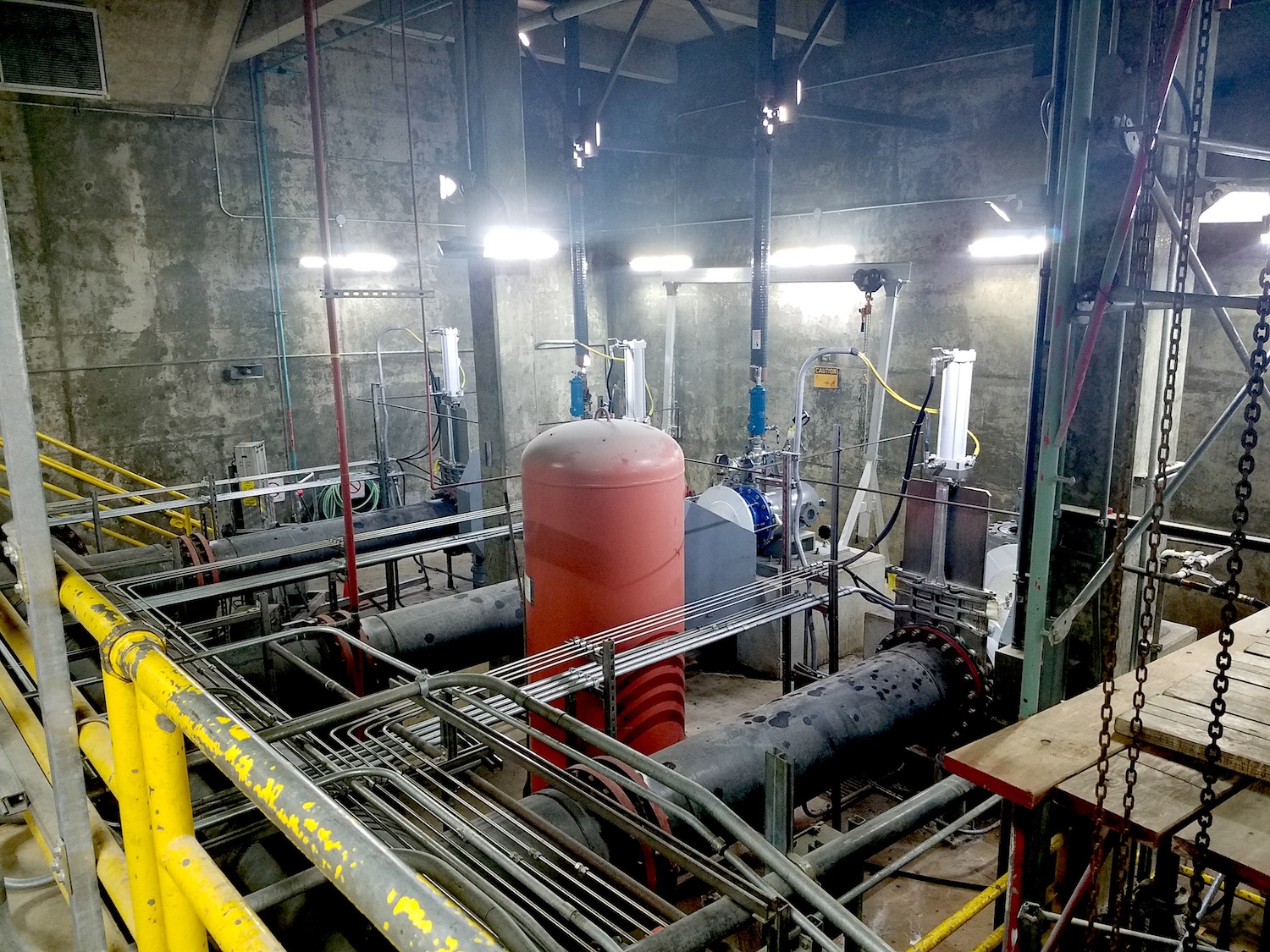
But there are other challenges. Rising sea levels and king tides means that there’s higher risk of salt water from the bay creeping into the Southeast Treatment Plant’s outflow pipe. Sensor networks can detect changes in salinity of water in the outflow pipe.
For San Francisco and other municipal governments and water authorities, a lot is at stake when it comes down proper management of stormwater and wastewater. First and foremost is protecting the environment through proper treatment of wastewater, but there’s also the risk of fines and other enforcement actions from the U.S. Environmental Protection Agency and other regulatory bodies when what’s being pumped back out into the bay or ocean doesn’t meet certain water quality standards.
“It really comes down to a real-time data infrastructure,” Wong said of his company's infrastructure analytics platform. “It’s a completely commercial off-the-shelf out-of-the-box solution that has the ability to connect up to many of these data silos,” Wong said. “Being able to collect all that data into a single real-time repository out of the box with no programming is really important.”
Michael Grass is Executive Editor of Government Executive’s Route Fifty and is based in Seattle.

NEXT STORY: Municipal Leaders Gather for Resilient Cities Summit
